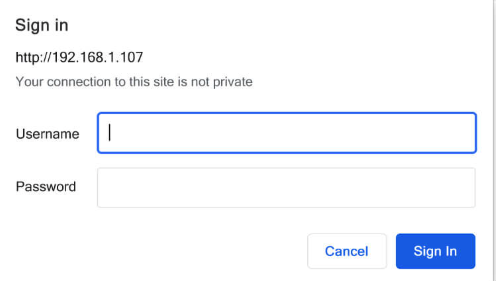Okay, so here’s the deal: 192.168.1.107 is a private IP address. It’s usually assigned to a specific device on your network — like your router or even a smart device — but in some cases, routers can also use this as a login gateway. If you landed here trying to access your router’s control panel, this guide is your shortcut.
How to Log In to 192.168.1.107
Let’s break it down real quick:
1. Make Sure You’re Connected
You need to be on the same WiFi network — or wired connection — as the router. Otherwise, it’s like trying to open a locked door without the key.
2. Open Your Browser
Doesn’t matter if it’s Chrome, Safari, Firefox — just fire it up.
3. Type the IP in the Address Bar
Pop this in (not Google search, I’m talking about the actual URL bar):
http://192.168.1.107
Hit Enter.
4. Login Screen Will Pop Up
You’ll now see a username and password field. Try these common ones first:
- Username: admin
- Password: admin
- OR
- Username: admin
- Password: password

Default Router Login Credentials
Here’s a quick cheat sheet:
| Username | Password |
|---|---|
| admin | admin |
| admin | password |
| user | user |
Still locked out? Don’t worry — keep scrolling, I’ve got your back.
Can’t Access 192.168.1.107?
It might not be your router’s login IP at all. Here’s what to try:
- Double-check your connection.
- Clear your browser cache.
- Try another device or browser.
- Reboot your router.
Find Your Real Router IP:
Windows:
- Press Windows + R, type
cmd, hit Enter. - Type
ipconfigand press Enter again. - Look for Default Gateway — that’s your actual router IP.
macOS:
- Go to System Preferences > Network > Advanced > TCP/IP
- Look next to Router
Forgot Your Router Password?
It happens. No judgment.
Just press and hold the reset button on the router for about 10-15 seconds. It’ll reboot and return to factory settings — and you can use the default login again.
What You Can Do Once Logged In
This is the fun part — you get full access to:
- Change your WiFi name and password
- Set parental controls or device limits
- Open/forward ports for gaming or servers
- Update your router’s firmware
- Secure your network like a boss
Final Words
If your router actually uses 192.168.1.107, now you know exactly how to log in, reset, and take full control of your network settings. Pretty satisfying, right?